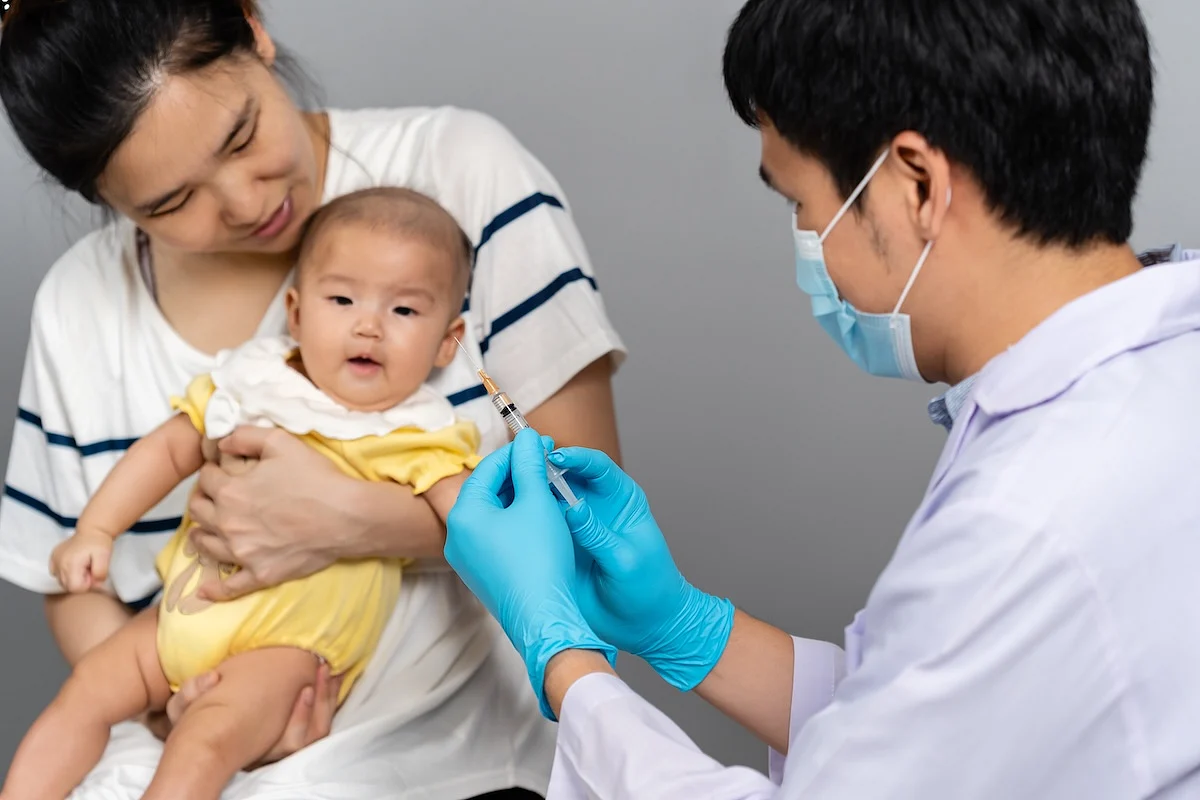Get Healthy!

- Dennis Thompson
- Posted July 17, 2025
Few Babies Getting RSV Antibody Shot, Study Says
A new antibody shot that protects babies against RSV infection could be struggling to gain traction, researchers report.
Only about a third (35%) of babies eligible for nirsevimab got the injection during the 2023-24 RSV season, researchers reported today in the journal Pediatrics.
That was the first season that the monoclonal antibody jab was available to babies following its approval by the U.S. Food and Drug Administration (FDA), researchers said.
“Notably, patients who were publicly insured, Black, or living in areas with lower childhood opportunity were significantly less likely to receive nirsevimab,” wrote the research team led by Mahaa Ahmed, a clinical research project manager at Children’s Hospital of Philadelphia.
Respiratory syncytial virus (RSV) is a common germ that usually causes mild, cold-like symptoms, according to the U.S. Centers for Disease Control and Prevention (CDC).
But RSV can be dangerous for infants. It’s the most common cause of pneumonia in children younger than 1 year of age, frequently leading to hospitalization, the CDC says.
To combat this threat, the FDA in 2023 approved nirsevimab, a lab-created antibody that provides babies with protection against RSV. The drug is marketed under the name Beyfortus by its manufacturer, Sanofi Pharmaceuticals.
Nirsevimab is recommended for all babies younger than 8 months, and for children 8 through 19 months who are at increased risk for severe RSV, the CDC says.
It’s one of two options that parents now have to protect their newborns. Another is an RSV vaccine that a mother can take while pregnant, with the protection she gains passing to her unborn child.
For the new study, researchers tracked nirsevimab use throughout the Children’s Hospital of Philadelphia Primary Care Network, a set of 32 practices across Pennsylvania and New Jersey that serves more than 300,000 children.
The team identified more than 7,200 babies eligible to have received nirsevimab during its inaugural 2023-24 RSV season.
But only about 2,500 got the vaccination, researchers found. Uptake ranged from 20% to 65% across practices.
It wasn’t because parents were vaccine-averse – 84% of the babies were fully vaccinated against a range of other infectious diseases by 9 months old, researchers said.
Overall, 39% of fully vaccinated babies and 22% of partially vaccinated babies received nirsevimab, results show.
Older babies born from April through July were 40% less likely to have gotten the shot compared with those born in August and September, researchers found.
“We hypothesize this is because younger infants have more frequent visits to the pediatrician and have a higher risk of complications from RSV,” researchers wrote. “However, infants aged 6-12 months remain at high risk for RSV hospitalization, and opportunities to receive nirsevimab outside well child visits, including acute care visits and nurse visits, may be particularly important for older children.”
Likewise, Black babies were 47% less likely to have gotten nirsevimab compared to white children, poor children were 30% less likely, and those on Medicaid or CHIP were 21% less likely.
“Notably, these disparities occurred despite the presence of a clinical decision support system, which reminded clinicians of all eligible patients,” researchers wrote.
Several factors could have contributed to the low uptake of nirsevimab, researchers said.
For example, since the shot had just been approved, parents and doctors might not have been certain that health insurance would cover it, researchers said.
“This early uncertainty might have led some families to decline nirsevimab and thus contributed to disparities in uptake,” researchers wrote.
Further study is needed to see whether this same lack of acceptance occurred in other health networks, and to suss out the reasons why some babies are more likely to get nirsevimab than others, researchers said.
More information
The U.S. Centers for Disease Control and Prevention has more on RSV.
SOURCE: Pediatrics, July 17, 2025

